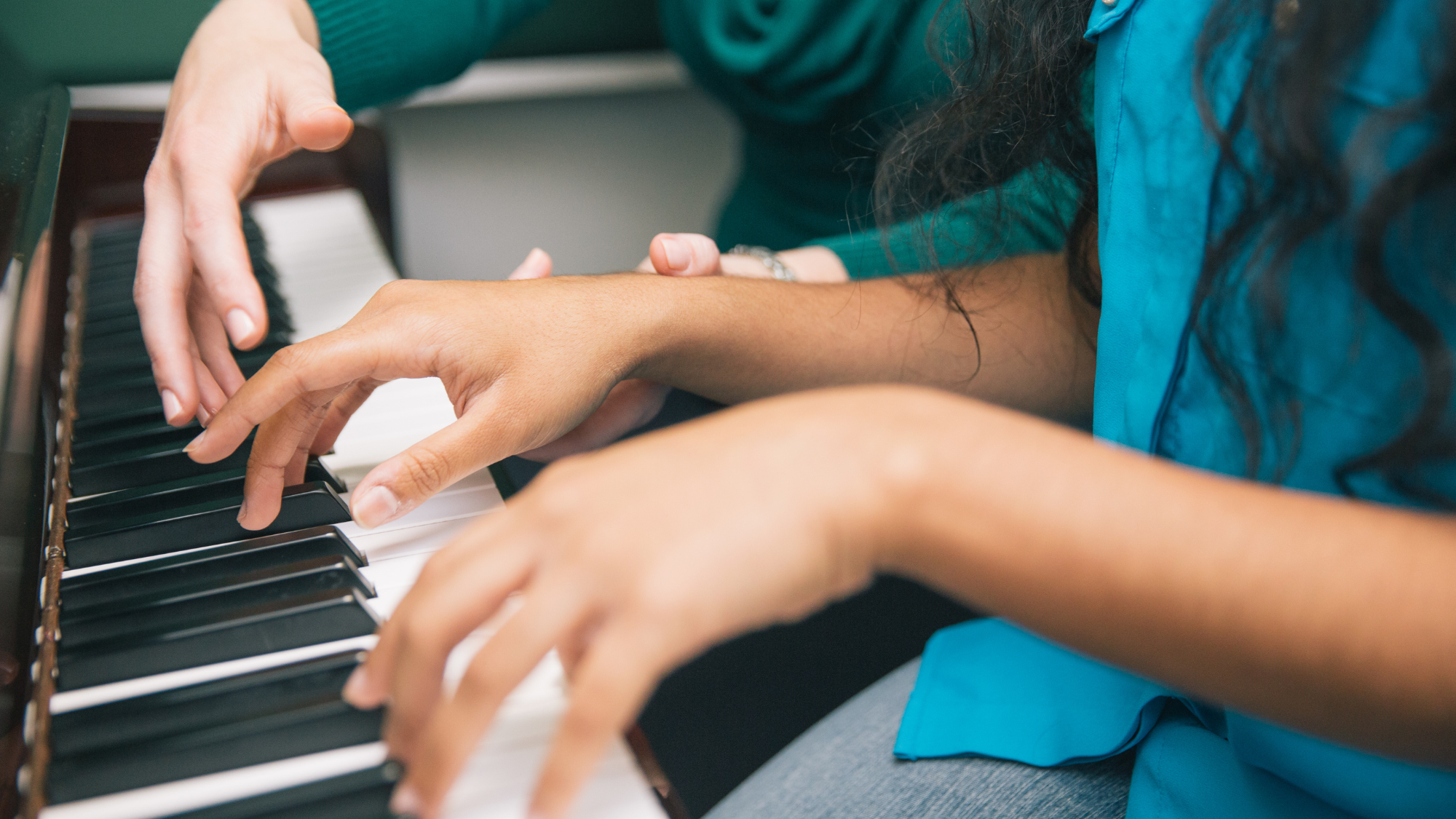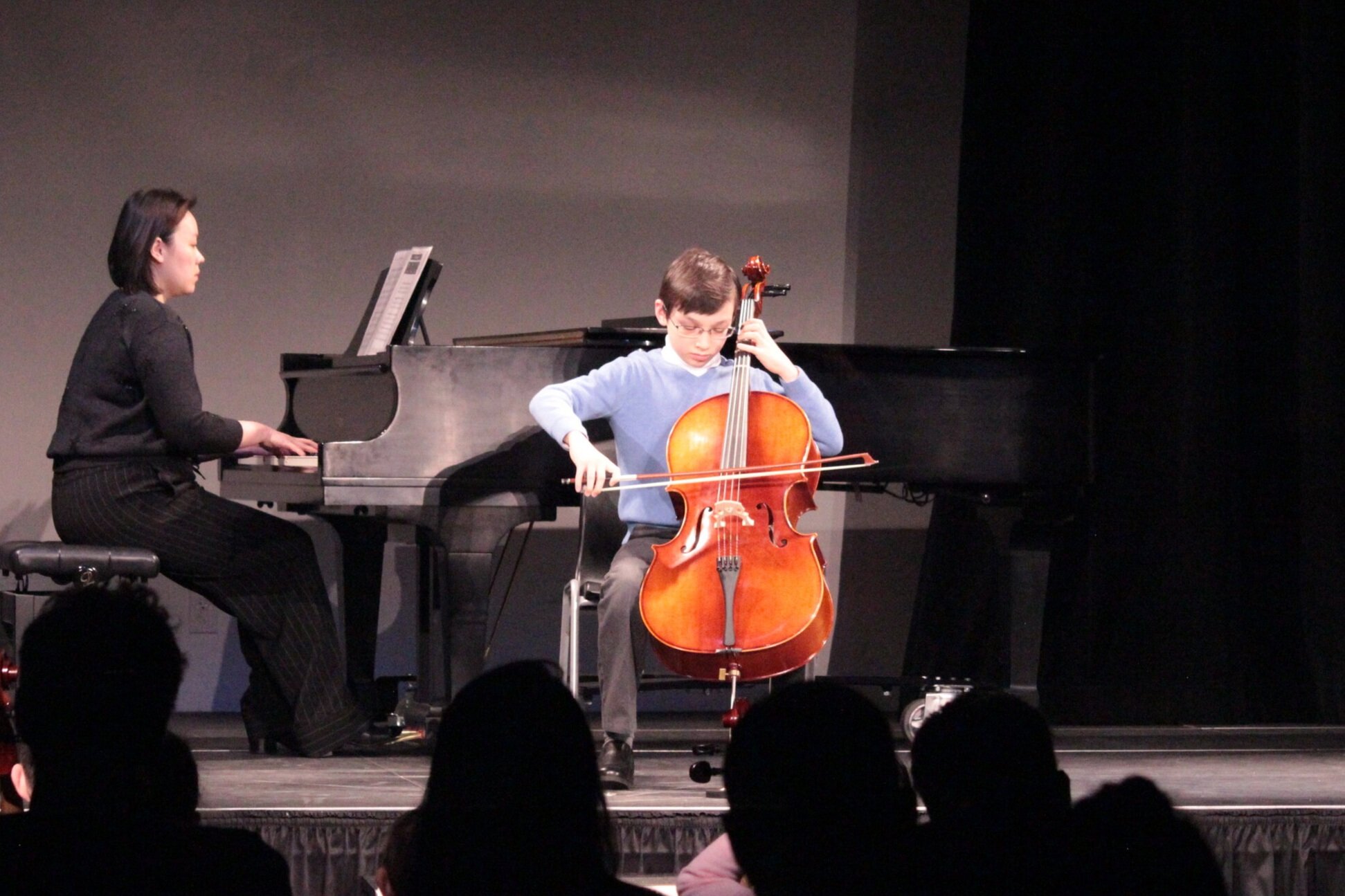
PRIVATE & SEMI-PRIVATE MUSIC LESSONS
Harmonia School offers private music lessons in all instruments and voice from young learners to adults. Our faculty specializes in areas and genres such as early childhood education, classical studies, jazz, and contemporary styles. Harmonia School is a good fit for students of all ability levels and interests.
Private music lessons provide students individual instruction with one of Harmonia’s talented faculty members. Lessons are designed around the unique needs, desires, and goals of each student, regardless of their age or experience level. For new students, we arrange a trial lesson to match you with the right teacher who can best meet your musical needs.
Piano
Students may begin studying private or group piano lessons at Harmonia as young as age 3½. Harmonia’s piano teachers are highly qualified to instruct students of all levels, from beginners to advanced.
Violin
Students may begin studying violin as young as age 3½. Instruction is offered in traditional private and group lessons, or through the Suzuki program.
Viola
Recommended age for beginning studies in viola is 5 years old.
Cello
Recommended age for beginning studies in cello is 5 years old. Instruction is offered in traditional private and group lessons, or Suzuki program.
Guitar
The recommended age for beginning guitar lessons is 7 years old, because guitar playing requires a fair amount of pressure on the fingertips. A smaller guitar and nylon strings are best for an enthusiastic younger guitar student.
Voice
Most teachers recommend starting formal voice lessons after a child’s voice changes in puberty. However, children can start as young as age 8 with general singing lessons. These lessons do not involve formal vocal technique, and will instead focus on the basics of breathing, musicianship, and singing on pitch.
Woodwinds
Woodwind (saxophone, flute, & clarinet) lessons can be started at the ages of 8 or 9. This restriction is due to the size of the instrument, as well as the need for more mature lung capacity.
Brass
Brass (trumpet) lessons can be started at the ages of 8 or 9. This restriction is due to the size of the instrument, as well as the need for more mature lung capacity.
PERFORMANCE OPPORTUNITIES
Formal Recitals
Harmonia holds three student recitals per year in which students perform a memorized piece of music in front of an audience. Your teacher will let you know which recitals you are invited to participate in. He or she will also help you prepare your music for the performance.
Competitions
Twice a year we hold Practice Competitions to encourage students to excel in their field while enjoying and building a habit of practicing. At the end of the competition, the records will be collected and each teacher will announce the winner of their studio in both beginner and intermediate levels. Prizes will be awarded for each category!
Chamber Music
Chamber music is a type of composition for small instrumental ensembles which includes instruments such as strings, winds, and piano. Harmonia teachers will periodically work together to form student chamber ensembles. These ensembles rehearse together regularly, and perform at a recital.
Honors Recital
The Honors Recital is an annual spring competition at Harmonia School. Teachers will nominate the students they feel are ready to compete and who also deserve the right to participate in this event. An outside and impartial judge will be invited to judge the audition. The winners will perform at the Honors Recital and receive a trophy.
Evaluations
At Harmonia, all of our students participate in End of the Year Evaluations. The evaluation involves playing or singing prepared piece/s for their instructor. The students are then provided with written feedback that they can use to improve their musicianship and performance skills, and speaks to how far they have progressed over the past school year.
Studio Workshops
Students who all take lessons with the same teacher are referred to collectively as that teacher’s studio. Teachers will schedule periodic studio workshops in which students sing or play a piece of music for each other in the style of a master class. The teacher will then offer feedback to that student while their studio classmates observe. This is a great way to learn from others, and also build a sense of studio teamwork.














